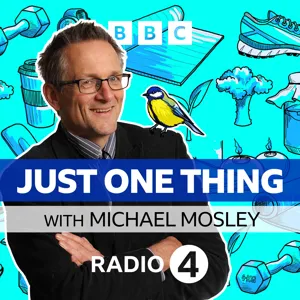Podcast Summary
Exploring the Health Benefits of Artistic Activities: Regularly engaging in art activities can reduce stress, improve mood, and foster self-expression
Engaging in artistic activities regularly can have numerous health benefits. Malika Gharib, a journalist and cartoonist, shares her personal experience with making art as a way to process emotions and reduce stress. She also highlights the importance of starting a regular art habit for those who don't consider themselves artists. According to a renowned art therapist, the process of making art can help individuals express themselves and improve their mood. Fashrinda Escobar, a Filipina American artist, shares her experience of being "hooked" on art after discovering its ability to bring her ideas to life. Apple Card, a sponsor of NPR, encourages listeners to host celebratory brunches for less with wallet-friendly finds from Whole Foods Market while earning daily cash back. By incorporating art into our daily lives, we can reap the rewards of reduced stress, improved mood, and a greater sense of self-expression.
Discovering the transformational power of art: Creating art activates the reward pathway, reducing stress and anxiety, and strengthens brain function through problem-solving and imagination.
Engaging with art, whether it's creating it or observing it, can have numerous benefits for both the mind and body. The story of the teacher who discovered new capabilities through drawing illustrates this idea. Despite her initial reservations and feelings of inadequacy, she found the process to be transformational. Research supports this, showing that creating art activates the reward pathway in the brain, leading to feelings of pleasure and reducing stress and anxiety. Moreover, the process of making art allows us to problem-solve and use our imagination, strengthening our brains. Artist Liana Fink's experience of using art to process complex emotions further highlights the power of art as a tool for understanding and preparing for life's challenges.
Discovering ourselves and navigating challenges through art: Art is a powerful tool for self-discovery and imagination, helping us build resilience and envision a hopeful future, regardless of skill level
Making art, whether it's through drawing, painting, sculpting, or any other creative outlet, is not only a way to discover new aspects of ourselves but also a valuable tool for navigating challenges and building resilience. According to art therapist Kaimel, when we create art, we're making a series of decisions that engage our brains and help us imagine possibilities. This act of imagination is an essential survival skill, preparing us for the future. Art therapy sessions have shown that even those who feel hopeless and despairing can benefit from creating art and envisioning a hopeful future. Additionally, you don't need to be a professional artist to reap the health benefits of making art. Everyone is capable of creative self-expression, and the key is to start with what you like and what feels good to you. So next time you feel stuck or uncertain, remember the power of art and give it a try.
Exploring the benefits of art for mental and emotional well-being: Art, in all its forms, is a powerful tool for self-care and stress relief, encouraging intentional time for self-expression and connecting different parts of the brain
Engaging in various forms of art, whether it's finger painting, cooking, or sculpting clay, is beneficial for mental and emotional well-being. The process of creating art, regardless of the outcome, can induce feelings of stress relief and positive emotions. It's not about the end product but rather the experience and the connection of different parts of the brain through self-expression. Kymal, a researcher, emphasizes that there's no hierarchy in art forms and encourages trying different mediums to engage multiple senses. She also suggests treating art as a healthy habit, dedicating intentional time to it, and making it a regular part of life, much like eating well or exercising. So, in summary, the key takeaway is that art, in all its forms, is a powerful tool for self-care and stress relief.
Discover the benefits of making art for mental and emotional well-being: Making art regularly can lead to feelings of calmness, relaxation, and improved mental health. Despite the challenges, embrace the process and let it help you express and understand difficult emotions.
Making art, even for just a few minutes a day, can bring significant benefits to both your mental and emotional well-being. Carve out dedicated time and space for art in your life, and make it a regular habit. When you engage in creating art, you may enter a state of flow, where you become fully present and time and space seem to disappear. This can lead to feelings of calmness, relaxation, and even physical health benefits. However, making art is not always an easy or pleasant experience. It can also bring up difficult emotions. Riding these waves of emotion is an important part of the process. Art can help you make sense of and communicate feelings that are hard to put into words. If you're going through a tough time, consider seeking the guidance of a credentialed art therapist. And remember, don't wait for inspiration to strike – make art a consistent part of your life and let the creative process unfold.
Overcoming creative blocks: To create authentic and cathartic art, overcome emotional and physical barriers by getting in the mood, allowing yourself to feel free, and using simple practices like breathing exercises, taking a walk, or making art for others when faced with creative blocks.
Creating art requires the right mindset and addressing any emotional or physical barriers that may hinder the creative process. Escobar and Fink both emphasize the importance of getting in the mood and allowing yourself to feel free and loose before creating. When faced with creative block or writer's block, it can be helpful to trick yourself into thinking you're just doodling or taking a break to address any underlying emotions. Simple practices like breathing exercises, taking a walk, or making art for others can also help overcome creative blocks and allow for a more authentic and cathartic artistic expression. Ultimately, creating art is a way to process emotions and communicate ideas when language isn't enough, and the sense of accomplishment and connection it brings can be incredibly rewarding.
Explore the benefits of engaging with art: Engaging with art, regardless of skill level, offers numerous health benefits. Make it a regular habit, embrace the process, and enjoy the positive impact on mind and body.
Engaging with art, regardless of skill level, offers numerous health benefits. It's important to remember that art isn't just for artists, but for everyone. You can approach art like any other healthy habit, making it a regular part of your life. Embrace the emotional journey that comes with creating art, and take your time to get into the right mindset before starting. Remember, the process is just as important as the end result. Whether you're painting a masterpiece or crafting a gift for a friend, the act of creating can have a positive impact on both your mind and body. Additionally, breaking down larger tasks into manageable chunks, as suggested by listener Walkyria Jimenez Lou, can help reduce feelings of overwhelm and make the experience even more enjoyable. So, take the time to explore your creativity, and reap the rewards for your overall wellbeing.





